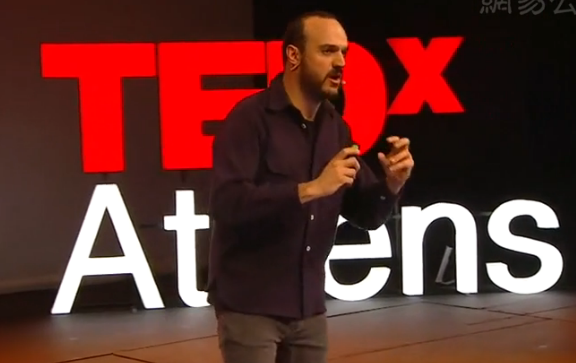But I want to make it clear: there is no such thing as silence.
我要说清楚的是,并不存在一种叫做无声的东西。
And I know this sounds like the most pretentious TED Talk statement ever.
我知道这说法听起来差不多是TED里最自负的。
But even if you were to enter a room with zero reverberation and zero external sounds,
但是,即使你进入一个没有任何回响的房间,也完全没有外部声音,
you would still be able to hear the pumping of your own blood.
你仍然可以听到自己血液流动的声音。
And in cinema, traditionally, there was never a silent moment because of the sound of the projector.
历史上,电影院里从来没有无声的时刻,因为放映机会发出声音。
And even in today's Dolby world, there's not really any moment of silence if you listen around you.
即使是在如今的杜比音响世界,如果你倾听四周,没有一刻是无声的。
There's always some sort of noise.
总会有某种噪音存在。

Now, since there's no such thing as silence, what do filmmakers and sound designers use?
现在,既然说没有真正的无声,电影制作者和音效设计师用什么呢?
Well, as a synonym, they often use ambiences.
他们通常用氛围声,跟“无声”差不多。
Ambiences are the unique background sounds that are specific to each location.
氛围声是独特的背景音,具体到每一个地点的背景音。
Each location has a unique sound, and each room has a unique sound, which is called room tone.
每个地点都有独特的声音,每个空间也有独特的声音,这叫做环境声。
So here's a recording of a market in Morocco.
这是在摩洛哥的一家市场里的录音。
And here's a recording of Times Square in New York.
这是在纽约时代广场的录音。
Room tone is the addition of all the noises inside the room: the ventilation, the heating, the fridge.
环境声是房间里所有噪音的叠加:通风设备,供暖设备,冰箱。
Here's a recording of my apartment in Brooklyn.
这是我布鲁克林区公寓的录音。



